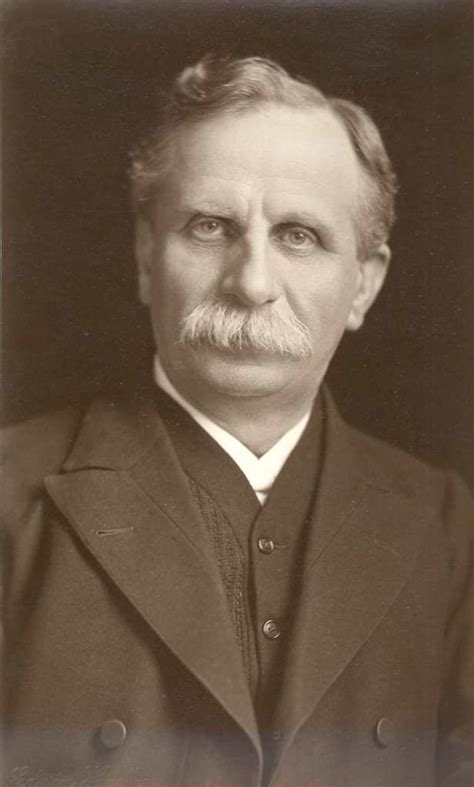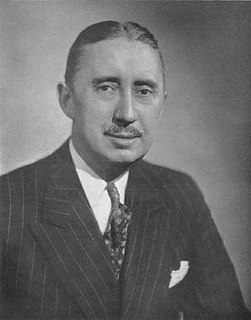A Quote by John Wesley
It is good to renew ourselves, from time to time, by closely examining the state of our souls, as if we had never done it before; for nothing tends more to the full assurance of faith, than to keep ourselves by this means in humility, and the exercise of all good works.
Related Quotes
But how can we love someone if we don't like him? Easy-we do it to ourselves all the time. We don't always have tender, comfortable feelings about ourselves; sometimes we feel foolish, stupid, asinine, or wicked. But we always love ourselves: we always seek our own good. Indeed, we feel dislike toward ourselves, we berate ourselves, precisely because we love ourselves; because we care about our good, we are impatient with our bad.
O, this faith is a living, busy, active, powerful thing! It is impossible that it should not be ceaselessly doing that which is good. It does not even ask whether good works should be done; but before the question can be asked, it has done them, and it is constantly engaged in doing them. But he who does not do such works, is a man without faith. He gropes and casts about him to find faith and good works, not knowing what either of them is, and yet prattles and idly multiplies words about faith and good works.
It seemed an advantage to be traveling alone. Our responses to the world are crucially moulded by the company we keep, for we temper our curiosity to fit in with the expectations of others...Being closely observed by a companion can also inhibit our observation of others; then, too, we may become caught up in adjusting ourselves to the companion's questions and remarks, or feel the need to make ourselves seem more normal than is good for our curiosity.
Satan dreads nothing but prayer. . . . The Church that lost its Christ was full of good works. Activities are multiplied that meditation may be ousted, and organizations are increased that prayer may have no chance. Souls may be lost in good works, as surely as in evil ways. The one concern of the devil is to keep the saints from praying. He fears nothing from prayerless studies, prayerless work, and prayerless religion. He laughs at our toil, mocks at our wisdom, but trembles when we pray.
...when we are going through the aftereffects of a bad jolt in loss of money or pride--and both are closely connected--we should get off to ourselves, make an honest appraisal of our shortcomings, and try to find our weak spots and bolster them up before starting in again. First on the program we should figure out a plan to eat. The money we have lost is a small matter; if we can keep our pride and strong faith in ourselves the battle ahead is half won before we start.
The constant exercise of our faith by lofty thinking, prayer, devotion, and acts of righteousness is just as essential to spiritual health as physical exercise is to the health of the body. Like all priceless things, faith, if lost, is hard to regain. Eternal vigilance is the price of our faith. In order to retain our faith we must keep ourselves in tune with our Heavenly Father by living in accordance with the principles and ordinances of the gospel.
God is also fully aware that the people you think are perfect are not.
And yet we spend so much time and energy comparing ourselves to others-usually comparing our weaknesses to their strengths. This drives us to create expectations for ourselves that are impossible to meet. As a result, we never celebrate our good efforts because they seem to be less than what someone else does
There is no better time than now, this very Christmas season, for all of us to rededicate ourselves to the principles taught by Jesus Christ. It is the time to love the Lord, our God, with all our heart – and our neighbors as ourselves. It is well to remember that he who gives money gives much; he who gives time gives more; but he who gives of himself gives all.
I try to keep in my mind the simple question: Am I trying to do good or make myself look good? Too many of our responsibilities get added to our plate when we are trying to please people, impress people, prove ourselves, acquire power, increase our prestige. All those motivations are about looking good more than doing good.
Pride is the switch that turns off priesthood power. Humility is a switch that turns it on . . . . Some suppose that humility is about beating ourselves up. Humility does not mean convincing ourselves that we are worthless, meaningless, or of little value. Nor does it mean denying or withholding the talents God has given us. We don't discover humility by thinking less of ourselves; we discover humility by thinking less about ourselves. It comes as we go about our work with an attitude of serving God and our fellowman.
What assurance have we that our masters will or can keep the promise which induced us to sell ourselves? Let us not be deceived by phrases about 'Man taking charge of his own destiny'. All that can really happen is that some men will take charge of the destiny of the others. They will be simply men; none perfect; some greedy, cruel and dishonest. The more completely we are planned the more powerful they will be. Have we discovered some new reason why, this time, power should not corrupt as it has done before?



































